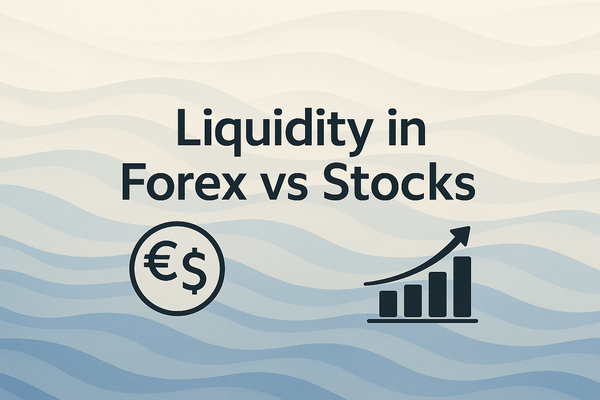Liquidity refers to the degree to which assets or Securities can be quickly bought or sold when traded in the market. Assets or securities with high liquidity can be bought or sold quickly without too much impact on market prices. On the contrary, illiquid assets or securities require longer time and higher trading costs to be bought or sold.

Liquidity is usually an important indicator of the market activity of assets or securities. High liquidity assets or securities are usually stocks of large companies, government bonds, etc., while low liquidity assets or securities are usually stocks of small companies, less active markets, etc. Liquidity is very important to investors, because it can affect whether they can enter or exit the market in time, as well as the volatility of market prices.
Liquidity has three uses or meanings. One refers to the overall macroeconomic liquidity, which refers to the amount of money invested in the economic system. The excess liquidity from 2007 to August 2008 refers to excessive money supply, which requires finding investment opportunities, leading to investment/economic overheating and inflation risks. The root cause of excess liquidity comes from China's continuously rising trade surplus. Export companies constantly exchange the recovered US dollars with the country, which requires the country to continuously inject RMB into the economic system, resulting in the phenomenon of excess liquidity.
In the stock market, we refer to liquidity as a whole, which refers to the amount of funds involved in trading relative to the supply of stocks. The funds here include on exchange funds, which are funds that have already purchased stocks, that is, the total circulating market value, and off exchange funds, which are funds that are still ready to enter the stock account at any time. If the stock supply remains unchanged, or if the growth rate of trading funds is faster than the growth rate of stock supply, even if the company's profits remain unchanged, it will lead to an increase in Stock Prices, and vice versa. This is a simple demand supply relationship, but this stock price increase has a limit. Excessive or excessive funding leads to an excessive increase in stock prices without performance support, and ultimately cannot be sustained. This type of funds is often referred to as hot money. The above two types of liquidity are mostly related, as excess liquidity in the economy usually leads to excess liquidity in the stock market. Therefore, when the country begins to tighten monetary policy, the stock market will lose its funding supply and perform poorly.
For individual stocks, liquidity is another concept that refers to the difficulty of buying and selling stocks, which means whether it is easy for me to sell after buying this stock. We often say that this stock has poor liquidity, which means it is difficult to sell at the ideal price, and stocks with good liquidity have a high turnover rate. Therefore, stocks with poor liquidity are mostly small cap stocks or highly controlled stocks, which are not suitable for large capital operations, even if the stock price rises after buying them, But it cannot be sold, and there is greater risk for large funds, so they are more willing to operate in large cap stocks with good liquidity, where trading is active and large-scale buying and selling will not cause significant changes in stock prices. However, small and medium-sized investors have a lot of freedom, as they have a limited amount of funds and can have many choices.
Liquidity is important for markets, companies, and individuals. Although the total value of assets owned may be high, if assets cannot be easily converted into cash, companies or individuals may encounter liquidity issues. For companies that provide loans to banks and creditors, insufficient liquidity may force them to sell assets they do not want to liquidate in order to meet short-term debts. Banks play an important role in the market, providing cash to companies while holding assets as collateral.
If investors hope to easily and smoothly enter and exit investments without delay, market liquidity is crucial. Therefore, you must ensure that you monitor the liquidity of stocks, mutual funds, securities, or financial markets before entering a position.
【 EBC Platform Risk Reminder and Disclaimer 】: There are risks in the market, and investment needs to be cautious. This article does not constitute investment advice.


























